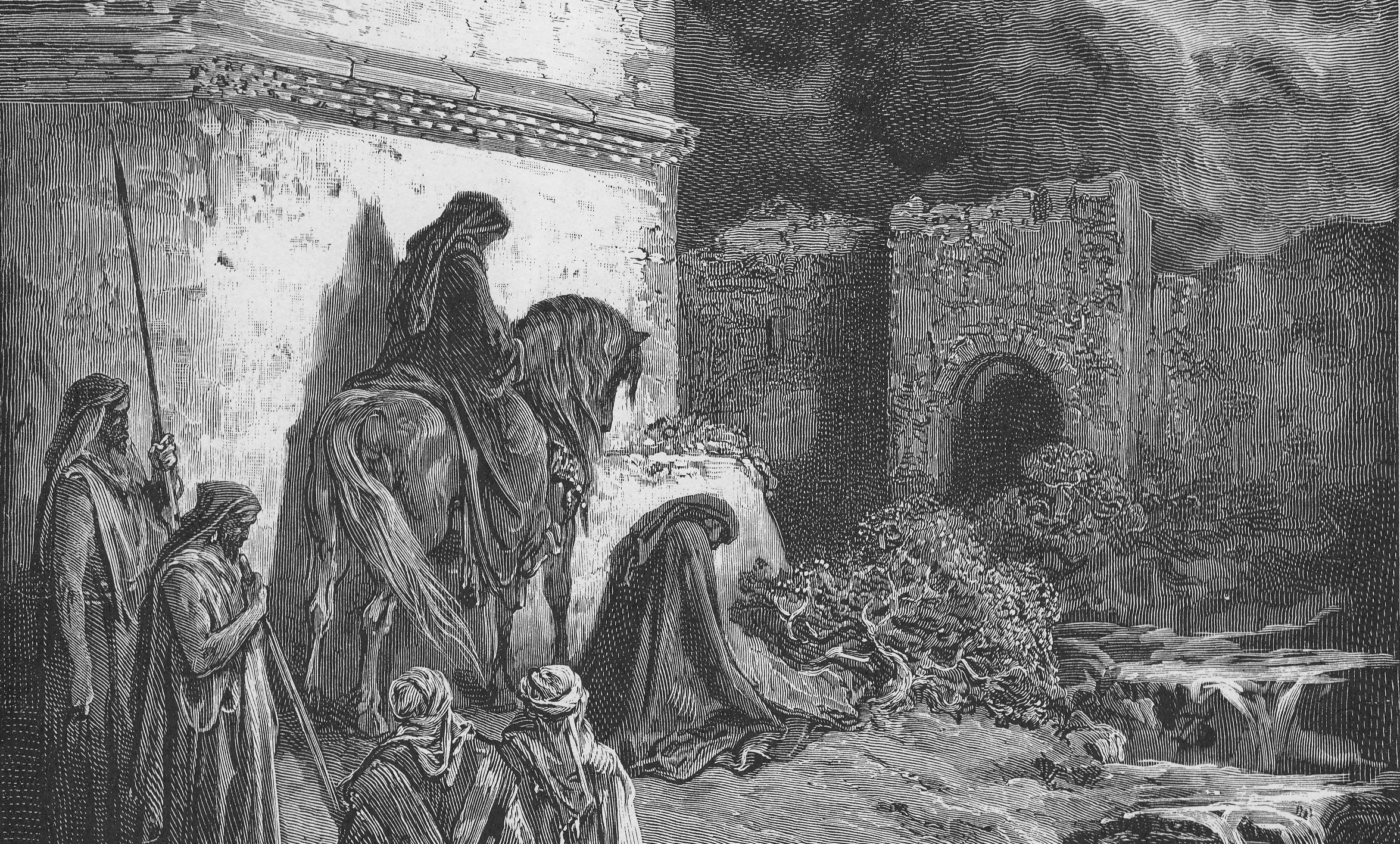It amazes me that people are surprised to find Christians happy. There is a false stereotype that Christians (and professed religious, in particular) are supposed to be sorrowful. In a way, they are correct, since Christians experience great sorrow for sin and can be, for instance, moved to tears at an image of the Passion. But as we know (and what is so often forgotten by others), the Lord promises us, even in the midst of sorrow or pain, greater joy than ever before.
In today’s first reading from the book of Nehemiah, we are brought to the reestablishment of the Temple. The book of Nehemiah describes Israel’s release from exile in Babylon and return to the promised land. Today’s lesson begins in the newly rebuilt city of Jerusalem with Ezra reading the Law of Moses (the Torah) to the people who have returned from Babylon. Apparently, Ezra read from daybreak until noon! At the conclusion of Ezra’s long reading, the people were, curiously enough, crying. Why were they crying?
They were not crying because of their punishment; they had already wept on account of their punishment in an earlier scene at Babylon. And they were not crying because they disagreed with the Law. After all, they said “Amen, amen!” In truth, they cried because God had remained faithful, from the epoch of creation to the story of Noah, from the period of the Patriarchs to the ministry of Moses, from the Exodus event to their arrival in the promised land. Presented with the many laws of the Covenant, they realized how guilty they were and how unworthy they were to worship God, who had been so faithful, in his Temple.
How could we Christians not do the same? How could we not cry on account of our sins? We are so blessed to have the Gospels of Jesus Christ, the fulfillment of the Old Law. And yet, we sin against God and often find ourselves not in God’s promised land but in the strangeness of Babylon. Just as God called the Israelites back to the promised land from Babylon, we are called back to the Church, in order to restore our relationship with him. We do not approach him with entitlement, nor with presumption, but with deep sorrow for our sins. And we do not have to traverse the entire fertile crescent like the Israelites, we merely have to enter a small room and confess our sins to him through a priest.
At the conclusion of the reading, Nehemiah and Ezra say to the people, “Do not be sad, do not weep”(Neh 8:9). We might respond to their command with an objection, given that the Israelites sinned so thoroughly against God. Why don’t they want the Israelites to weep? Then they say further, “Go eat rich foods and drink sweet drinks” (Neh 8:10). How can they be so instructed, after their disobedience and indulgence on food and drink? Nehemiah explains, “because today is holy to the Lord your God” (Neh 8:10).
Similarly, when we find our way home to Jesus, the New Temple, it is a cause for true joy. We are not the cause for this joy; God is the cause! We have sinned and transgressed against the law, but God is truly merciful. We are told as Christians, like those Israelites in today’s reading, to partake of the richest food and the sweetest drink. But our food and drink is different. It is the same food that our Lord calls “my body” and the same sweet drink that he calls “my blood.” How then could we ever be truly sorrowful if the Lord treats us with us such kindness?
✠
Image: Gustave Dore, Nehemiah Views the Ruins of Jerusalem’s Walls







